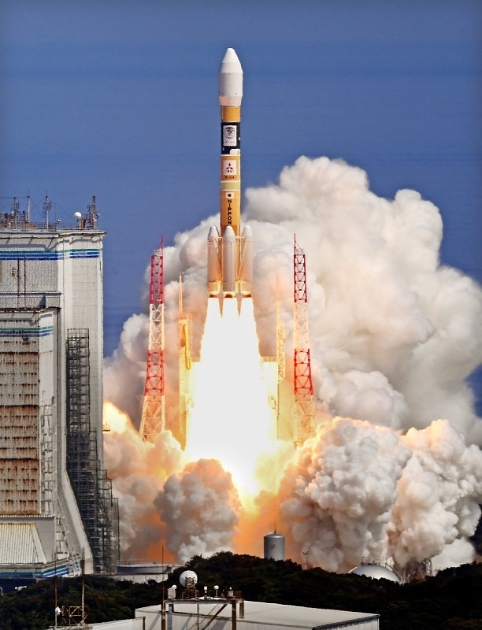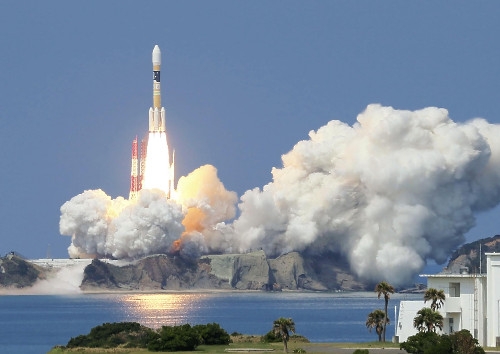On September 19th, Japan successfully deployed its third "Quasi-Zenith" navigation satellite into orbit using the H2A rocket. This marks a significant milestone in Japan's efforts to build an independent satellite navigation system. The launch took place at 14:29 local time (13:29 GMT) from the Tanegashima Space Center located in Kagoshima Prefecture, in southwestern Japan. Approximately 30 minutes post-launch, the "Michibiki" No. 3 satellite reached its designated orbit.
The first satellite in this series, Michibiki No. 1, was launched back in 2010. Then, on June 1st of this year, the second satellite followed suit. Originally scheduled for launch on September 12th, the third satellite faced a temporary postponement just one hour before lift-off due to issues with the fuel system. Japan aims to launch the fourth satellite later this year, aiming to form a foundational network of four satellites. By 2023, they hope to expand this to a total of seven satellites.
The term "Quasi-Zenith" refers to a satellite constellation designed to ensure that at least one satellite is always positioned directly above Japan. These geosynchronous satellites are strategically placed across multiple orbital planes, ensuring continuous coverage over the region. This initiative is often referred to as Japan’s version of GPS.
Currently, Japan relies entirely on the U.S.-based GPS system for its positioning needs. The Japanese government is keen on developing a compatible system that could enhance positioning precision. Their long-term vision includes establishing a fully autonomous global satellite positioning system, independent of U.S. GPS.
Attached are images from recent launches, showcasing the advanced technology and dedication behind Japan’s space endeavors. As the nation progresses with its satellite program, it continues to demonstrate its commitment to technological advancement and self-reliance in critical infrastructure.


In summary, Japan’s Quasi-Zenith satellite system represents more than just a technological achievement—it symbolizes their ambition to achieve greater autonomy in critical sectors like telecommunications and navigation. While the current system complements the existing GPS network, Japan envisions a future where such systems can operate independently, providing reliable and precise services to its population and industries.
Power Cabinet,Power Distribution Cabinet,Outdoor Powder,Power Distribution
Guangdong Yuqiu Intelligent Technology Co.,Ltd , https://www.cntcetltd.com